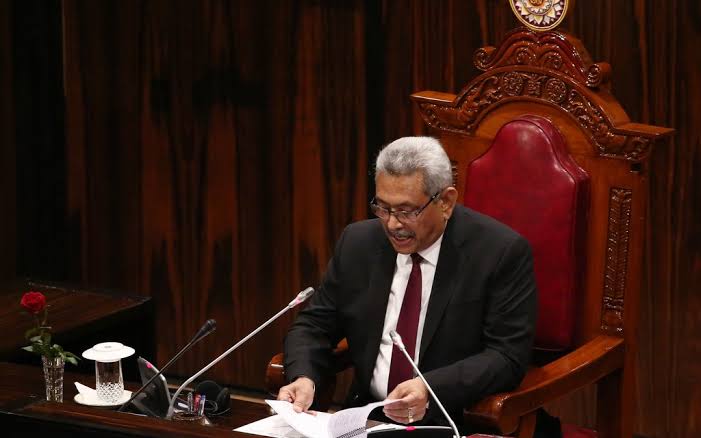Sri Lankans are scheduled to vote in a crucial parliamentary election on Wednesday, as the country’s president looks to consolidate his power with a majority for his party.
SEE ALSO: Britain Urges China To Step Back On Hong Kong Security Law
President Gotabaya Rajapaksa is urging voters to give his party, the Sri Lanka People’s Front (SLPP), a two-thirds majority in the 225-seat parliament.
“I need a strong mandate from the people to implement my promises given during the presidential elections,’’ Rajapaksa said during his campaign meetings.
He was elected president in November.
The president’s elder brother, Mahinda Rajapaksa, the current prime minister of the caretaker government, is running as the prime ministerial candidate for the SLPP. He already served as president for two consecutive terms between 2005 and 2015.
A rift in the main opposition party, the United National Party (UNP), has helped the Rajapaksas’ party gain the confidence they will pull off a victory and secure the seats needed for constitutional changes.
After the split in the UNP, led by former Prime Minister Ranil Wickremesinghe, most of its popular members, including deputy leader Sajith Premadasa, formed a new party and are competing separately in the election.
The division of the main opposition has given an added advantage to the SLPP.
Prime Minister Rajapaksa told voters that voting for parties with divisions is futile.
“Vote for a party which is stable.
“It is easy to serve the people if the president and the parliament are from the same party,’’ he said.
During the former government, in office from 2015 to 2020, Sri Lankans witnessed a rift between the president and government and its consequences.
Halfway through his term, former president Maithripala Sirisena decided to support Rajapaksa instead of working with former premier Wickremesinghe’s UNP.
This led to several issues including security lapses, which contributed to the 2019 Easter Sunday bombings by extremists group that claimed 268 lives.
Sirisena is now competing in the elections for the Rajapaksas’ SLPP.
President Rajapaksa argues that with a two-thirds majority in parliament, he could amend the constitution to remove certain provisions, for instance, regarding the appointment of key officials.
He said that appointing key officials has been an obstacle to ruling the country.
Rajapaksa has already appointed several former army officers for top civil administration positions.
He is a former military officer, who played a key role as defence secretary in defeating the Tamil rebels in 2009, ending a 26-year conflict.
The coronavirus adds some uncertainty to the election, as this year’s campaign has been curtailed due to the threat of the virus spreading.
Health officials restricted the number of persons attending election rallies to 500, while house-to-house to campaigns were restricted to three people.
“We are calling on voters to come out and vote after assuring them all health precautions have been taken,’’ Mahinda Deshapriya, Chairman of the Election Commission, told dpa.
Election monitoring groups fear that the voter percentages will drop, as many of the elderly may not come out to vote.
Over 16 million voters are eligible to cast their ballots on Wednesday from 7.00 a.m. until 5.00 p.m. (0130-1130 GMT).
Polling has been extended by one hour, as voting will take longer with the coronavirus health restrictions in place.
The counting of votes has been delayed until Thursday, enabling officials to carry out the count under the safety procedures.
Due to the strict health procedures to be followed, electoral spending has doubled to 10 billion rupees ($54 million).

